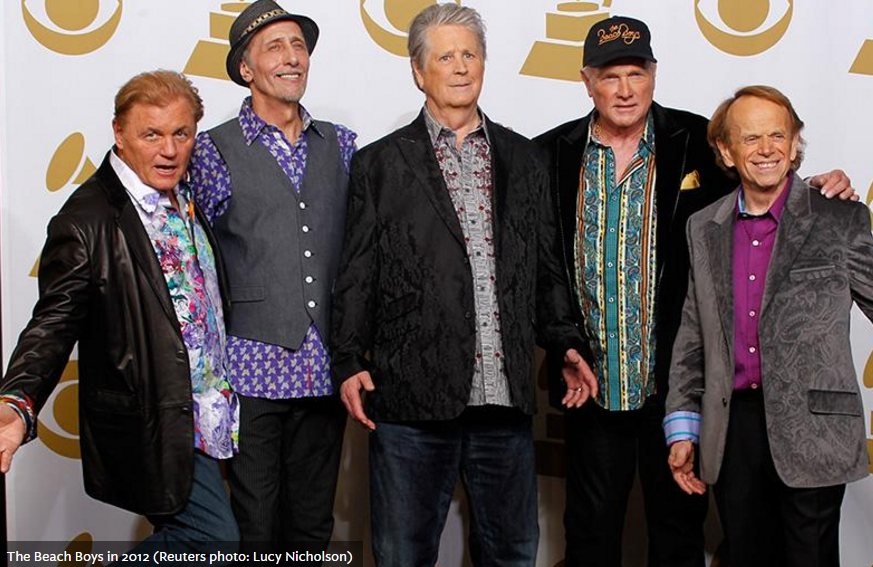
'Beach Privilege,' Is Serious
Katherine Timpf
National Review Online
November 3, 2016
In a piece for the New York Review of Books, critic Ben Ratliff discusses how the blatant “beach privilege” displayed in the Beach Boys’ most popular songs makes the band kind of problematic.
Yes — “beach privilege.”
According to Ratliff, the issue is “not that they didn’t make some albums still eminently worth hearing,” but “a kind of philosophical problem.”
“[T]ime and social change have been rough on the Beach Boys,” Ratliff writes in a piece titled “Looking for the Beach Boys.” “Their best-known hits (say, ‘California Girls,’ ‘Help Me, Rhonda,’ ‘I Get Around’) are poems of unenlightened straight-male privilege, white privilege, beach privilege.”
“It is hard to imagine that they helped anyone toward self-determination or achieving their social rights,” he continues.
Okay. First of all, what the hell is “beach privilege”? Seriously, on what planet could that be a thing? Definitely not on this one, because here, pretty much everyone — regardless of class or social status — has been to a beach or at least had the opportunity to go to one. I’m sure there might be some exceptions to this, but to say that hanging out on a beach makes you some sort of fancy blueblood is perhaps one of the most absurdly incorrect things I’ve ever heard.
Second of all, why does the music of the Beach Boys have to have “helped anyone toward self-determination or achieving their social rights?” Sure, it is true that the Beach Boys didn’t discuss the problems of the world in their songs; they were all about fun and being happy and the beach and hooray. But here’s the thing: People listen to The Beach Boys because their songs are about fun and being happy and the beach and hooray. That’s the whole point. Songs about the problems of the world have a place in our society, but so do songs that allow people to forget about them. After all, nobody wants to have a margarita and dance around in the sunshine to songs about bigotry and hunger and death and disease. Helping people with “achieving their social rights” is good, but do you know what else is good? Fun. In fact, fun is a thing that often helps people with problems forget about those problems, which allows them to be, you know, happy — and (correct me if I’m wrong!) but I’ve always thought that making people happy is actually a pretty great thing to do.
— Katherine Timpf is a reporter for National Review Online.

 RSS Feed
RSS Feed
